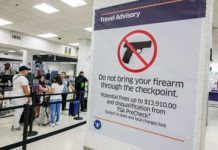The Protective and Safety Association of Kenya (PROSAK) and the Protective Security Industry Association (PSIA) have embarked on a legal battle against the Private Security Regulatory Authority (PSRA) led by Fazul Mahamed.
The move comes in response to what the two associations deem as illegal pronouncements and actions by the Fazul Mahamed-led authority including the imposition of a minimum wage bill and arbitrary license cancellations.
The associations argue that these measures not only undermine the constitutional and legal framework but also pose a significant threat to the survival of many private security firms in the country.
“Currently this case has been moved to the High Court. We are confident that justice will soon prevail as we continue to explore all available options to promote fairness among all stakeholders and bring sanity to the private security sector,” said the associations in a statement on Thursday. They emphasise their commitment to using constitutional and legal avenues to address what they perceive as unjust actions by the regulatory authority.
The associations highlight that the PSRA’s actions have disregarded established legal procedures outlined in the PSRA Act, thereby demonstrating impunity.
One of the major points of contention raised by PROSAK and PSIA is the PSRA’s imposition of a minimum wage bill for security guards. They assert that wage adjustments fall under the jurisdiction of the Ministry of Labour, not the PSRA.
“Any adjustments in wages must be gazetted by Labour CS Florence Bore, as stipulated under the Employment Act No 11 of 2007. CS Bore has already disowned the PSRA’s illegal directive that requires private security firms to pay their guards a minimum salary of Sh30,000. The Ministry of Labour last amended wage adjustments in 2022 via Gazette Notice No 125,” reads the statement.
Additionally, PROSAK and PSIA express concerns over the PSRA’s cancellation of licenses for some private security firms. They argue that such actions were taken without following proper procedures outlined in the PSRA Act, which require prior notice and the right to appeal. The associations condemn the PSRA’s disregard for legal protocols, highlighting the detrimental impact on affected companies.
In highlighting the economic strain faced by private security companies, PROSAK and PSIA underscore the challenges posed by the current economic environment. They acknowledge the need for better pay for security guards but stress that achieving this objective requires collaboration among stakeholders.








